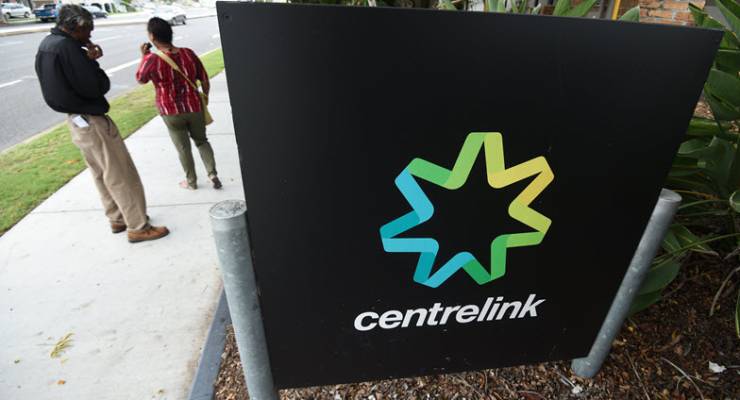
It’s no secret that a conga line of rent-seekers is currently making its way to Canberra, using the pandemic as cover for pushing conservative agendas.
Various groups such as the IPA and BCA are trying hard to make sure that the Coalition doesn’t resile from its neoliberal agenda and start behaving like socialists.
But it’s not just the conservatives taking this opportunity to lobby governments. The progressive groups are also doing it, capitalising on the public’s newly-founded enthusiasm for bigger government.
Their job is a much harder one, however. Firstly, it’s much easier to tell a government minister what he or she wants to hear. Also, progressive initiatives usually involve spending money — something Morrison will be reluctant to do once the initial phase of the crisis is over.
On top of this, many of the policies sound like motherhood statements, such as “more money for carers”. If you are going to grab the attention of the treasurer in a pandemic, you need to come up with something new.
The sector with some early wins, however, is planning and urban design. Shutting down city offices and sending people home to work has exposed just how much unnecessary space is taken up by cars.
On most footpaths, it’s almost impossible to keep 1.5m away from someone coming towards you unless one of you steps onto the road. Widening footpaths would fix that and encourage more people to walk around.
Last week NSW Planning Minister Rob Stokes announced grants for local councils to widen footpaths, close roads, create new cycle paths and make greater use of public outdoor space.
Planning experts are now calling for apartment blocks to be designed with wider hallways and staircases and more natural ventilation airflow. Cities also need to become touch-free, with “beg-buttons” turned off and more automatic doors.
Progressive think tank Per Capita is thinking big. It has published “an open letter to our political leaders”. The Melbourne-based group says that this crisis presents an opportunity to “reset our economy to be more sustainable and equitable, and to pay down [debts incurred] without causing further damage to Australians through austerity measures”.
Although some groups were calling for cuts to government spending on essential services and an increase in the GST, this would be a mistake, the group says. “Cutting spending will jeopardise the recovery and lead us down a low demand, high unemployment, low growth route.”
Although recent government spending has been called a stimulus, it should more accurately be described as welfare spending for the economy. “The stimulus we need is still to come,” the letter says.
Many groups, including the federal opposition, have been calling for the government to reverse its decision to reduce the JobSeeker allowance down to the pre-pandemic level after the September deadline. Most people on the JobSeeker payment are paid around $550 a week, which is around double the previous rate of only $39 a day.
The Australian Council of Social Service CEO Cassandra Goldie has said that “beyond the current crisis, we must ensure that our social security system provides the support that people need to get by, including single parents, people with disability, carers and those struggling with the cost of rent. Now more than ever, we are seeing why we need to have a decent social safety net in place at all times.”
In a paper released last month, Canberra-based think tank The Australia Institute has called for a careful evaluation of future spending, saying that conventional stimulus measures simply don’t apply.
“While the current economic downturn may resemble the beginning of previous recessions, because the cause of the downturn is so different, government responses must be structured quite differently than any previous downturn,” it says.
The papers says traditional approaches to “stimulus” cannot succeed in boosting output in tourism, retail, food and entertainment as the changes these industries have seen are a direct result of government health policies designed to ensure social distancing.
“The government’s approach of a ‘temporary and targeted’ stimulus needs to evolve quickly into an approach that is ‘structural and sustained’,” it says.
One of the sectors hardest hit by the pandemic-related shutdown has been the international education sector, worth about $39 billion a year and currently Australia’s fourth largest export. Key lobby group for the sector, Universities Australia, estimates the sector will experience a revenue decline of $3 billion to $4.6 billion in 2020.
UA chair Deborah Terry welcomed the recent announcement of an $18 billion funding guarantee as a “first step” but warned that there will be a tough road ahead. “We estimate 21,000 jobs at Australian universities will go within the next six months,” she said.
“Individual universities are already cutting costs across the board through very substantial reductions in operational spending, deferral of vital capital works, and reductions in senior staff salaries.” However, she notes, this would be nowhere near enough to balance the loss of tuition fees.
A comprehensive plan for building a stronger Australia after COVID-19 has been produced by Sydney-based think tank, the Centre for Policy Development. It includes making efforts to understand the country’s vulnerability to systemic risk, aligning growth with a low-carbon future, revaluing the care sector, encouraging businesses to back long-term value creation and working differently.
CEO Travers McLeod said that “COVID-19 has exposed fault lines and frontiers for Australia’s future. We should roll up our sleeves and start paving a new path — actions will speak louder than words”.
Although it feels like it took place in a previous lifetime, the last federal election was in fact only a year ago this month. This means that Morrison and Frydenberg have about two years — or, in Australian terms, about three prime ministers — to get their acts together and get us through this particular crisis and the economic aftermath.
Will they be taking the advice of the various lobby groups and think tanks which have been lining up to dispense their wisdom? Well, that depends.
If you need any guidance on whose voices are prioritised in Canberra, you really only need to read one document; the list of political donations as disclosed to the Australian Electoral Commission.
Who gets ushered to the top of the queue in the corridors of power? It’s not hard to work it out.








Calling for less miserable unemployment benefits is not rent-seeking. I invite Margot to do so.
Beat me to it RAR.
Once you open up “rent seeking” to unintendedly broad application where does it end ? Public schools, Medicare and most social goods can be re-badged as an unearned economic benefit if you try a bit. Not sure what point it would serve.
Smearing those wanting the modest comfort envisaged by Justice Henry Higgins in his legendary Harvester Judgement is intended to justify treating people living on the street as being the undeserving poor.
When are we going to start thinking about the future, the real future ?
Did we forget that we are destroying the planet ?
The only way forward for humanity is to reduce population and develop no growth economic systems.
That is the road forward. Perhaps if our leaders won’t take us upon it , a virus will.
When indeed shall we start thinking . . . Covid-19 is indeed a threat. But it can be ‘managed.’ Isolation!
Impact of Climate by far . . . the ultimate global threat. If denied. Termination!
When indeed shall we start thinking ? …Probably when there’s a critical mass of the world’s population that starts thinking & realizing that they’re a species ..I don’t think the numbers are anywhere near yet. The science of it hasn’t become everyday ordinary common knowledge reality.
….ubiquitous everyday ordinary common knowledge reality.
Yes our impact on the climate is certainly a massive threat. It’s also about all of the other impacts on the planet that “fairy tales of eternal economic growth” have created.
Deforestation, loss of habitat, extinction of species, loss of bio diversity, environmental impacts of mining, pollution of oceans and rivers, resource exhaustion, waste disposal etc.
I think what is in the article could best be described as a centrist agenda. There is nothing really left about it. But then we barely have any left worth speaking of in Australia now as we follow the USA into its strange version of reality.
If nothing else, there will be a lot of vacant office & mall space unleasable at any price for “old” businesses.
Enter a new idea, urban farms,esp high rise vertical high value veg & herb gardens – those towers to cupidity have all that is needed, controlled environments, water supply & disposal facilities.
Why was that comment held in moderation?
It’s over 16hrs now, what great issue is involved in deciding what needs moderating in the comment above?
Looks like a run of the mill comment to me, can’t see anything in it to justify moderation.
It often seems a key word is enough to trigger the Mod Squad, I reckon Jack Robbo’s recent JR-length comment (posted on a Friday held over until Monday, but that’s par for the course) was pinged for one little four letter word starting with a capital N ending with a lower case i .
Applying my theory to your comment, I can only assume “cupidity” rattled the Squad’s cage !?!
Unless…no, surely not,no… or could it be ? The Mod Squad have figured out who you really ARe.
Thanks Blodeuwedd, I’m getting a little impatient with this style of political commentary. Two sides grappling for more leverage,..really? I didn’t have to read it but..
I think the best comments and articles discuss alternative approaches to taking on the current circumstances we find ourselves in. Quite a few of the articles here are circumspect and pontifically dependent on the definition of political terminology which has been force fed by people outside our country that doesn’t actually apply to us , except by this “invasion” of the meanings and levering them into our culture. Some authors here are getting distracted, not really forwarding anything of substance.
Let ‘s get on with ideas and use science to develop what will and won’t work, it only takes the seed of ideas to germinate, exactly what this journal can potentially do.